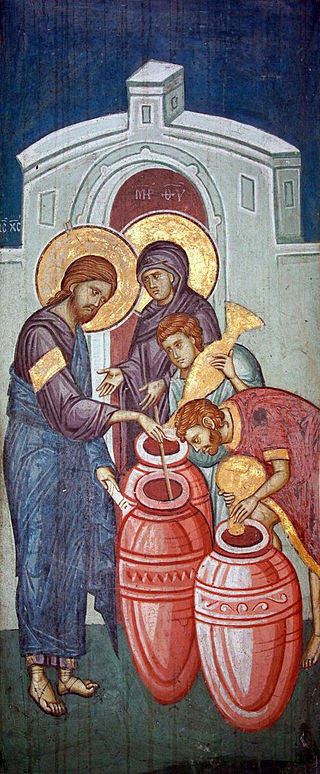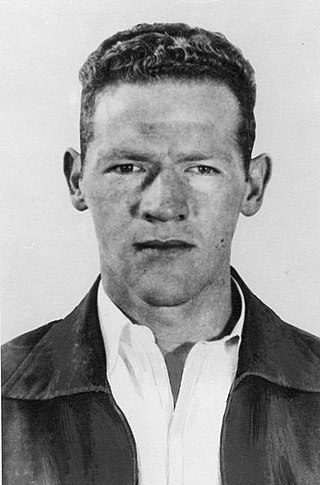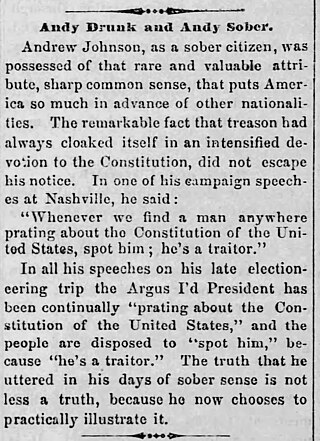Related Research Articles

Barnard Arnold "Barney" Gumble is a recurring character in the American animated TV series The Simpsons. He is voiced by Dan Castellaneta and first appeared in the series premiere episode "Simpsons Roasting on an Open Fire".

George Glenn Jones was an American country musician, singer, and songwriter. He achieved international fame for his long list of hit records, including his best-known song "He Stopped Loving Her Today", as well as his distinctive voice and phrasing. For the last two decades of his life, Jones was frequently referred to as the greatest living country singer. Country music scholar Bill Malone writes, "For the two or three minutes consumed by a song, Jones immerses himself so completely in its lyrics, and in the mood it conveys, that the listener can scarcely avoid becoming similarly involved." The shape of his nose and facial features earned Jones the nickname "The Possum". Jones has been called "The Rolls-Royce of Country Music" and had more than 160 chart singles to his name from 1955 until his death in 2013.

Mothers Against Drunk Driving (MADD) is a non-profit organization in the United States, Canada and Brazil that seeks to stop drunk driving, support those affected by drunk driving, prevent underage drinking, and strive for stricter impaired driving policy, whether that impairment is caused by alcohol or any other drug. The Irving, Texas-based organization was founded on September 5, 1980, in California by Candace Lightner after her 13-year-old daughter, Cari, was killed by a drunk driver. There is at least one MADD office in every state of the United States and at least one in each province of Canada. These offices offer victim services and many resources involving alcohol safety. MADD has claimed that drunk driving has been reduced by half since its founding.

Harold John Smith was an American actor. He is credited in over 300 film and television productions, and was best known for his role as Otis Campbell, the town drunk on CBS's The Andy Griffith Show and for voicing Owl and Winnie the Pooh in the first four original Winnie the Pooh shorts and later Winnie the Pooh Discovers the Seasons, Winnie the Pooh and a Day for Eeyore and in the television series, Welcome to Pooh Corner and The New Adventures of Winnie the Pooh. He also did a cameo in The Apartment as a drunken Santa Claus.
"Days of Wine and D'oh'ses" is the eighteenth episode of the eleventh season of the American animated television series The Simpsons. It originally aired on the Fox network in the United States on April 9, 2000. In the episode, Barney realizes how much of a pathetic drunk he is after watching his birthday party video and decides to give up alcohol forever, which upsets his friend Homer. Meanwhile, Bart and Lisa work together to take a memorable photo for a new phone book cover contest.

Southern Comfort is a 1981 American action thriller film directed by Walter Hill and written by Michael Kane, Hill and his longtime collaborator David Giler. It stars Keith Carradine, Powers Boothe, Fred Ward, T. K. Carter, Franklyn Seales and Peter Coyote. The film, set in 1973, features a Louisiana Army National Guard squad of nine from an infantry unit on weekend maneuvers in rural bayou country as they antagonize some local Cajun people and become hunted.
The Drunken Bakers is a strip cartoon in the British adult humour magazine Viz created by writer Barney Farmer and artist Lee Healey. It depicts the alcohol-dominated lives of two forlorn bakers who attempt to run a small bakery. The strip was adapted into a video-art installation piece by the artist Mark Leckey in 2006, and a novel 'Drunken Baker' by Barney Farmer in 2018.

Les Battersby is a fictional character from the British ITV soap opera Coronation Street, who appeared from 1997 to 2008, played by Bruce Jones. The character is best known for his outspoken opinions and his following of English rock band Status Quo.

Otis Campbell is the fictional "town drunk" in Mayberry on the American TV sitcom The Andy Griffith Show. Otis was played by Hal Smith and made frequent appearances on the show from 1960 to 1967 but stopped appearing toward the end of the series because of concerns raised by the sponsors over the portrayal of excessive drinking.

Christian views on alcohol are varied. Throughout the first 1,800 years of Church history, Christians generally consumed alcoholic beverages as a common part of everyday life and used "the fruit of the vine" in their central rite—the Eucharist or Lord's Supper. They held that both the Bible and Christian tradition taught that alcohol is a gift from God that makes life more joyous, but that over-indulgence leading to drunkenness is sinful. However, the alcoholic content of ancient alcoholic beverages was significantly lower than that of modern alcoholic beverages. The low alcoholic content was due to the limitations of fermentation and nonexistence of distillation methods in the ancient world. Rabbinic teachers wrote acceptance criteria on consumability of ancient alcoholic beverages after significant dilution with water, but prohibited undiluted wine.
"Beer" is the fifth episode of the BBC sitcom Blackadder II, the second series of Blackadder, which was set in Elizabethan England from 1558 to 1603. In the episode, an embarrassing incident with a turnip, an ostrich feather and a fanatically Puritan aunt leads to a right royal to-do in the Blackadder household. The episode marks Hugh Laurie's first ever Blackadder appearance, and Miriam Margolyes's second. Laurie would go on to appear in every subsequent episode of the show.
The Kaiser Burnout was a fire set by Confederate Captain James Kaiser during the American Civil War in the Big Thicket area of Southeast Texas.
Lucinda Davis was a slave who grew up in the Creek Indian culture. She spoke the Muskogee Creek language fluently. The main information source was from an interview in the summer of 1937, at which time she was guessed to be 89 years old. Lucinda's parents were owned by two different Creek Indians. Being enslaved so young without her parents, she never found out her birthplace, nor the time of her birth. Her mother was born free in African when she escaped her captors either by running away or buying back her freedom, the white enslaver, who was also the mother's rapist and father of Lucinda, sold their child to Tuskaya-hiniha. Lucinda was brought up in the Creek family she was sold to.
The 1961 Washington Senators season was the team's inaugural season, having been established as a replacement for the previous franchise of the same name, which relocated to the Twin Cities of Minnesota following the 1960 season, becoming the Minnesota Twins. The Senators finished in a tie for ninth place in the ten-team American League with a record of 61–100, 47½ games behind the World Champion New York Yankees. It was also the team's only season at Griffith Stadium before moving its games to D.C. Stadium for the following season. The expansion team drew 597,287 fans, tenth and last in the circuit. The old Senators had drawn 743,404 fans in 1960.

Moontide is a 1942 American romantic drama with elements of a thriller. It was produced by Mark Hellinger and directed by Archie Mayo, who took over direction after the initial director Fritz Lang left the project early in the shooting schedule. The screenplay was written by John O'Hara and Nunnally Johnson (uncredited), based on the 1940 novel Moon Tide by Willard Robertson. The film features French star Jean Gabin, Ida Lupino, Thomas Mitchell and Claude Rains.

In vino veritas is a Latin phrase that means "In wine, there is truth", suggesting a person under the influence of alcohol is more likely to speak their hidden thoughts and desires. The phrase is sometimes continued as, "In vīnō vēritās, in aquā sānitās", i.e., "In wine there is truth, in water there is good sense ." Similar phrases exist across cultures and languages.

"Babylon Revisited" is a short story by F. Scott Fitzgerald, written in 1930 and first published on February 21, 1931 in the Saturday Evening Post and free inside The Telegraph, the following Saturday.

Richard Lawrence Marquette is an American serial killer who killed three women, drained their blood, mutilated and dismembered their bodies, and scattered their remains between 1961 and 1975. He was the first person ever to be added as an eleventh name on the FBI Ten Most Wanted List, in connection with the 1961 murder of Joan Caudle in Portland, Oregon. He is currently incarcerated at Oregon State Correctional Institution.
Quahog is a fictional city in the U.S. state of Rhode Island that serves as the primary setting of the American animated sitcom Family Guy and other related media. The Griffin family, the Browns, the Swansons, and Glenn Quagmire live on Spooner Street, with the Griffin family residing at 31 Spooner Street. As revealed in the season 7 episode "Fox-y Lady", the city's ZIP code is 00093. Peter's birth certificate in the season 13 episode "Quagmire's Mom" gives Peter's birth location as Newport County.

The Andrew Johnson alcoholism debate is the dispute, originally conducted amongst the general public, and now typically a question for historians, about whether or not Andrew Johnson, the 17th president of the United States, drank to excess. There is no question that Andrew Johnson consumed alcohol, the debate concerns whether or not he was governing drunk, how alcohol may have altered his personality and disrupted his relationships, and if, when, or how it affected his political standing, and even his current bottom-quartile historical assessment. Less so today, but in his own time, Johnson's alleged drinking contributed substantially to how his peers evaluated his "attributes of mind, character, and speech. In each case, a particular standard is assumed to mark presidential virtue and is in turn used as a basis for vilifying Johnson. Thus, where the good ruler is temperate, Johnson is an inebriate; where the good ruler is selfless, Johnson is self-regarding; where the good ruler is eloquent, Johnson is a rank demagogue. Needless to say, there lurks behind all these assumptions the still and silent image of the Great Emancipator, but that is another story."
References
- ↑ "Who was Cooter Brown, as in 'drunk as Cooter Brown'?". Almanac.com. Retrieved 2013-11-04.
- ↑ "The Origin of the Phrase "Drunk as Cooter Brown" Dates Back from the American Civil War and Refers to a Heavy Drinker Who Escaped Being Drafted Due to His Continuous Intoxication". War History Online.com. 26 April 2018. Retrieved 2018-04-26.
https://www.warhistoryonline.com/history/phrase-drunk-as-cooter-brown.html